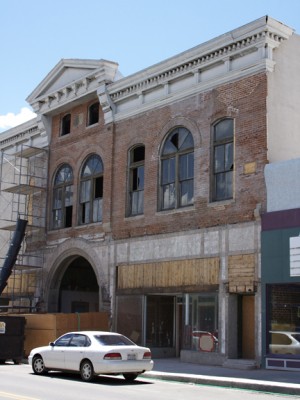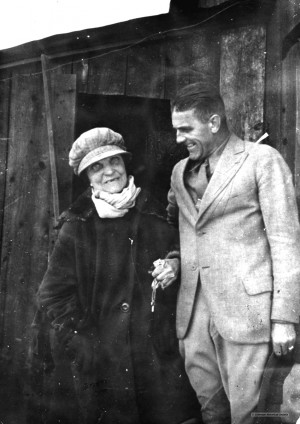by John Mattingly
I caught this headline last month: “Americans Want Less Government, Fewer Services.”
Indeed. A recent poll revealed 68% of U.S. citizens have exhumed Ronald Reagan’s famous claim, “Government is not the solution to the problem, government is the problem.”
I spoke with a few agricultural folks about this survey, and they agreed, pretty much unanimously. No big surprise. As a group, farmers and ranchers have a chronic distrust of government programs and meddling. Especially out here in the West, where we’re all rugged as the Rockies and don’t need no “gotdam gumment” stiffs hangin’ round, right?
Well, maybe.
When I squeezed a little harder on these anti- “gumment” opinions, the result proved to be, shall I say, nuanced. Yes, farmers and ranchers want less government, particularly for the lazy pot-lickers on the dole, and the bonus-bloated bone-pickers on Wall Street. But those of us in agriculture should not be wounded by cut-backs. We in agriculture are special and irreplaceable. We produce food. Therefore, we feel government should stay behind us.
There is strong consensus among people in agriculture that programs such as the Conservation Reserve Program (CRP), should be beefed up to give operators more money per acre to fallow their ground. And nearly everyone favors those federal programs that share the costs of fencing, water ponds, irrigation management, conservation, and erosion control. Commodity loans and price supports are also keepers. Everyone I spoke with agreed these programs should be expanded, or at least made more accessible to the common man, since those of us in agriculture hate to fill out paperwork.
Perhaps most people who responded to the question about more or less government were thinking, “If the government cut back spending and services for everybody else, there would more for me, because whatever I’m doing is obviously more important.” This is just basic human nature.
The more I talk to Westerners, and the more I look at the American West without pioneer-colored glasses, the more I see the huge spread between reality and perception regarding the role of the federal government. The popular perception of the West is that of a region populated with descendants of pioneers who came out here in covered wagons, or with a mule and pick ax, to yank a living out the ground the hard way. People who move here today come get a whiff of that spirit, that independence, and maybe see a swath of earth the way it was before humans got carried away with development. The swagger of the good ol’ pioneer spirit is manifest in our art, advertising, lifestyle, and general attitude, especially toward the government.
The reality, however, is a far cry from this perception. Going back 150 years, the West was largely unsettled, a part of the Louisiana Purchase. Uncle Sam’s development concept was to give the land away as homesteads. This was unique. Seldom in the history of the world has government given land away to “the people.” But it was done in the U.S. with the idea that small farmers were “incorruptible peasants.” The feds even provided security for the land giveaway, killing off the natives who wouldn’t move to a reservation.
The land giveaway was partly successful, as homesteaders settled only the best and most productive lands. Colorado is still 40% public lands, Wyoming 70%, and Nevada 90%. So not only did the new “landed peasant class” get free land, they literally looked a gift horse in the mouth, and were protected from the previous “landowners” while they did it.
The homesteaders needed to be connected to the rest of the economic web, so Uncle Sam built the railroads, giving the railroad builders unsettled territory – a checkerboard of 640-acre sections – in exchange for the opportunity to make money shipping goods in and out of the West.
Of course, the homesteaders also needed water for towns and fields, so Uncle Sam subsidized the building of reservoirs and ditch systems through the Bureau of Reclamation. Most of the “loans” between the private sector and the government were never paid back, and this piece of Western history is well documented in books such as Cadillac Desert.
The West also needed power, so Uncle Sam came along with Rural Electrification, which never would have been possible as a private venture because the homesteads were so sparsely spaced.
If free, cherry-picked land serviced by railroads and supplied with water and power weren’t enough to give the rugged individuals of the West a good shot at a profit, Uncle Sam tossed in a couple of additional benefits. The first was free grazing of the land that couldn’t be given away during the Homestead Act, followed by free access to public lands for mining under the Hard Rock Mining Act. Uncle Sam then built roads into the public lands to make it a little easier to access these benefits.
All in all, the western United States is one of the biggest socialist regions in the world. Anyone who brags about being a fourth- or fifth-generation descendant of homesteaders in the West might want to think first about how much the federal government had to do with the success of their pioneer ancestors.
Many residents of the West are quick to complain about big government, about too many feds milling around, sticking their noses into our business. Our bias out here in the West definitely favors less government.
Just send the money, we know what to do with it from there.
John Mattingly cultivates prose, among other things, and was most recently seen near Creede.



